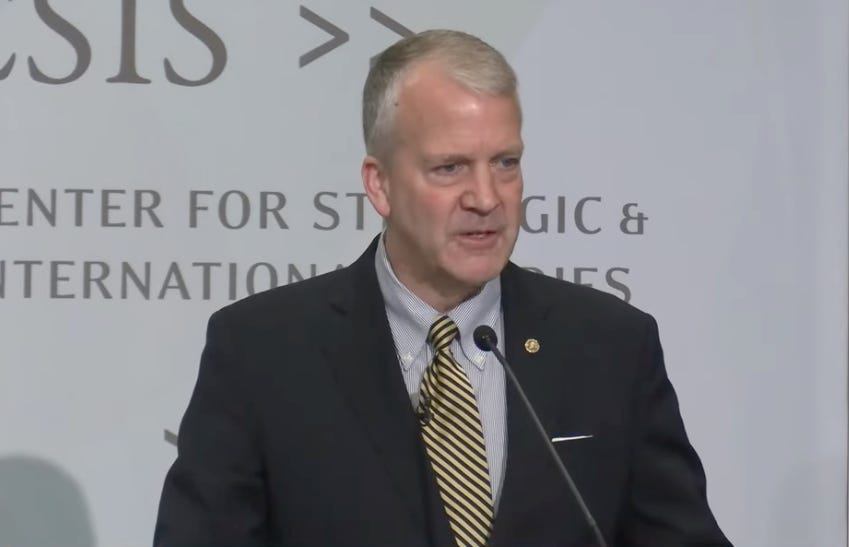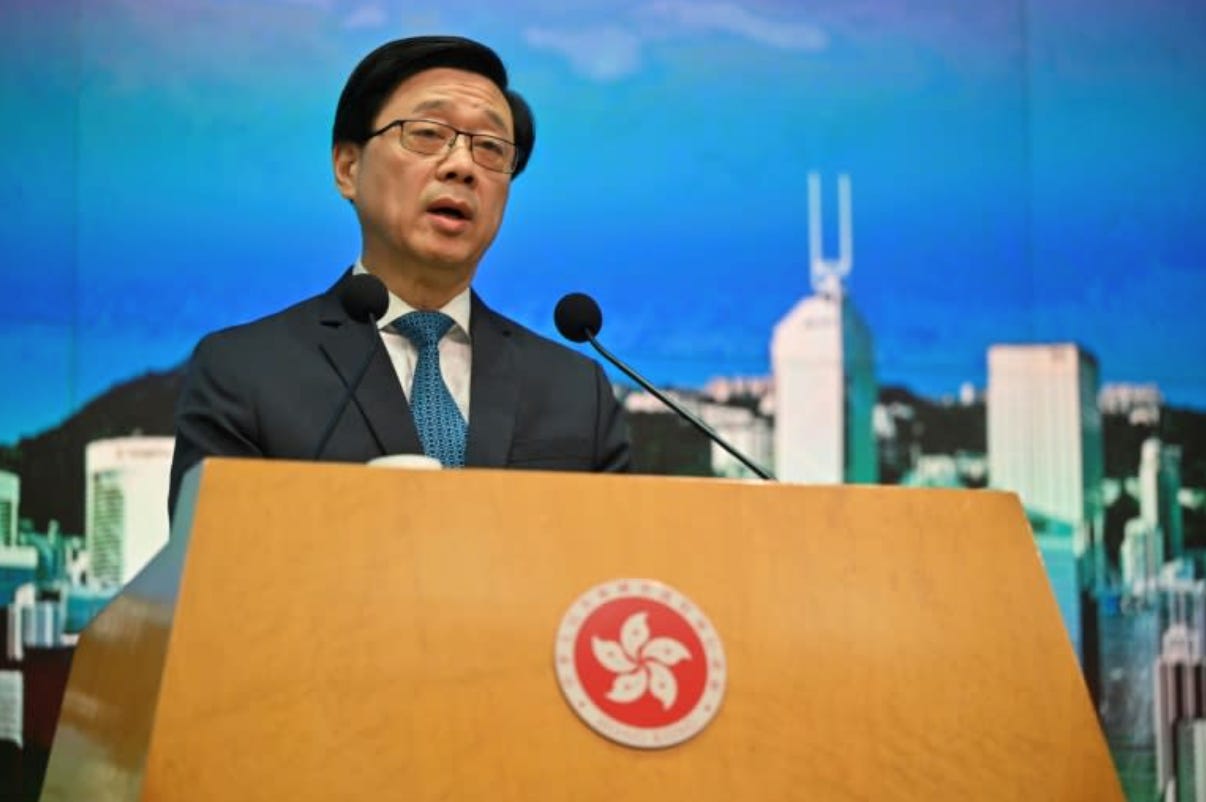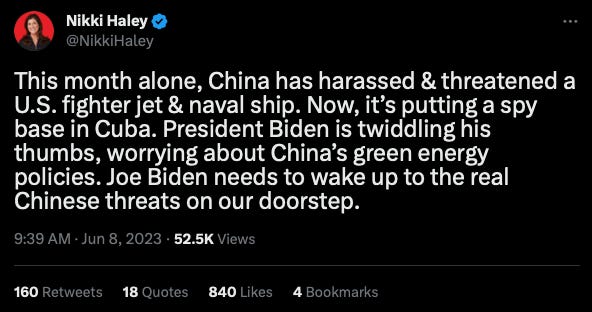Alaska Senator pitches LNG deal to Japan, Korea
Sullivan urges US allies in Asia Pacific to replace Russian energy.
United States Senator Dan Sullivan, an Alaska Republican, traveled to Japan and Korea earlier this week to promote US energy exports to the region.
“The United States is an energy superpower, all-of-the-above energy, renewables, oil, gas. And a lot of our allies in the region need that and need our assistance,” Senator Sullivan said in remarks at the Center for Strategic and International Studies in Washington, DC, on Thursday.
“Alaska has a huge LNG project that we've been working on for many years that could supply our allies in the region, in addition to Alaska, with clean burning natural gas for decades,” he said.

The Federal Energy Regulatory Commission has approved an 800-mile pipeline connecting gas fields in Prudhoe Bay with an export terminal in Nikiski, Alaska. The project, which gets US infrastructure funding, would produce up to 20 million metric tons of LNG a year.
Sullivan said he expects energy to be part of upcoming trilateral discussions when White House National Security Adviser Jake Sullivan travels to Japan and South Korea next week. President Joe Biden has invited leaders of both countries to the White House in the next few months to cement a new trilateral alliance, he said.
“I'm hopeful that on these next rounds of trilateral discussions, the administration, the Japanese, the Koreans will strongly move forward on the strategic advantage that we have with regard to energy and bring the Taiwanese, the Philippines and ASEAN countries into that mix as well.”
Japan and Korea are looking for alternatives to Russian energy supplies, Sullivan said.
Sullivan is a lead sponsor of a bill introduced in the Senate last month to promote the financing and development of infrastructure projects in the Asia Pacific to develop an export market for Alaskan LNG.
HK leader to attend US-hosted APEC Summit
US lawmakers have asked the US State Department to prevent Hong Kong Chief Executive John Lee from visiting in November for the Asia-Pacific Economic Cooperation summit in San Francisco.
“Inviting a sanctioned human rights abuser is an affront to all those who have been persecuted by the Chinese Communist Party and the People’s Republic of China and its proxies in Hong Kong,” a bipartisan group of House and Senate legislators said in a June 7 letter.

Lee was hit with US travel restrictions in 2020 for his role in leading Beijing’s crackdown on pro-democracy protestors in Hong Kong. US sanctions law provides for a waiver and the State Department has said Lee’s attendance at the APEC summit would “foster regional economic dialogue” and help “maintain global macro-economic stability.”
In Beijing, Foreign Ministry spokesperson Wang Wenbin said: “We believe the US will deliver on its commitments and make sure that representatives of all APEC members, including Hong Kong, China, will participate smoothly in the APEC events.”
China headed for a lost decade: Lachman
Financial markets commentator Desmond Lachman, a former IMF economist now at the American Enterprise Institute, argues in a Barron’s op-ed that China’s economy is fizzling.
“So much for the Chinese economic boom. Last year China ended a disastrous zero-Covid policy that had crippled its economy. A rush of growth was widely expected to follow. Instead of booming, five months after the ending of its Covid restrictions, the Chinese economic recovery is sputtering. That is due in no small measure to the bursting of its outsized housing and credit market bubbles,” Lachman writes.
“The question now is whether China will experience a lost economic decade as Japan did in the 1990s following the bursting of its property and credit market bubble. We may be at the end of the period when China, the world’s second-largest economy, served as the world economy’s main growth engine and the main driver of international commodity prices.”
Rubio attacks Shein in Senate letter
Senator Marco Rubio, the senior Republican on the Senate Intelligence Committee, has issued a “Dear Colleague” missive to other members of the Senate, sharply criticizing Chinese fast-fashion online retailer Shein which is trying to shake allegations its products are made with Uyghur forced labor and embargoed Xinjiang cotton.
“Shein knows its reputation is toxic, so now it is taking steps to clean up its image ahead of a potential initial public offering in the United States,” Rubio said.
“It hired lobbyists from the firms Akin Gump and Hobart Hallaway Quayle to protect its tax and trade loopholes. It relocated its headquarters from China to Singapore to escape scrutiny as a Chinese company, although its fabrics and garments are still made in China.”
“Shein is even touting its own ‘third-party analyses,’ which found that only some of its cotton comes from Xinjiang. This study amounts to an admission of guilt, yet incredibly, Shein presents it as evidence of good corporate citizenship.”
The US Congress passed a ban in 2021 on cotton imports from Xinjiang.
Taiwan denies report on drone sharing
Taiwan’s Ministry of Defense took the unusual step on Thursday of denying a report in the Financial Times that Taiwan would co-ordinate real-time data from its naval surveillance drones with the US and Japan.
“The MND has not yet been informed of plans to share real-time data from naval reconnaissance drones with the US and Japan as has been reported by some media outlets,” the ministry said in a tweet.
Stephen Roach, a fellow at Yale University and former Wall Street economist who has written a book on the troubled US-China relationship, warned against the US escalating tensions.
“If this account is accurate, it is yet another worrisome escalation of Taiwan tensions. China may not welcome Blinken with open arms,” Roach tweeted.
Biden is said to be preparing a visit to Beijing in coming weeks, part of an effort by US and Chinese diplomats to arrest a downward spiral in relations.
White House denies reports on Cuba spy base
White House spokesman John Kirby has denied reports by The Wall Street Journal and CNN citing unnamed intelligence officials that China has reached an agreement to put an electronic eavesdropping base on Cuba.
“This report is not accurate,” Kirby told the WSJ without providing any details.
“US officials described the intelligence on the planned Cuba site, apparently gathered in recent weeks, as convincing. They said the base would enable China to conduct signals intelligence, known in the espionage world as SIGINT, which could include the monitoring of a range of communications, including emails, phone calls and satellite transmissions,” the WSJ reported.
US lawmakers expressed concern and Nikki Haley, a former UN ambassador who is now running for the Republican nomination for president, tweeted about it.
The competing claims illustrate pressures in US domestic politics over China that are likely to make it increasingly difficult for the Biden administration to manage tensions with Beijing heading into the 2024 US presidential election.
—William Roberts





